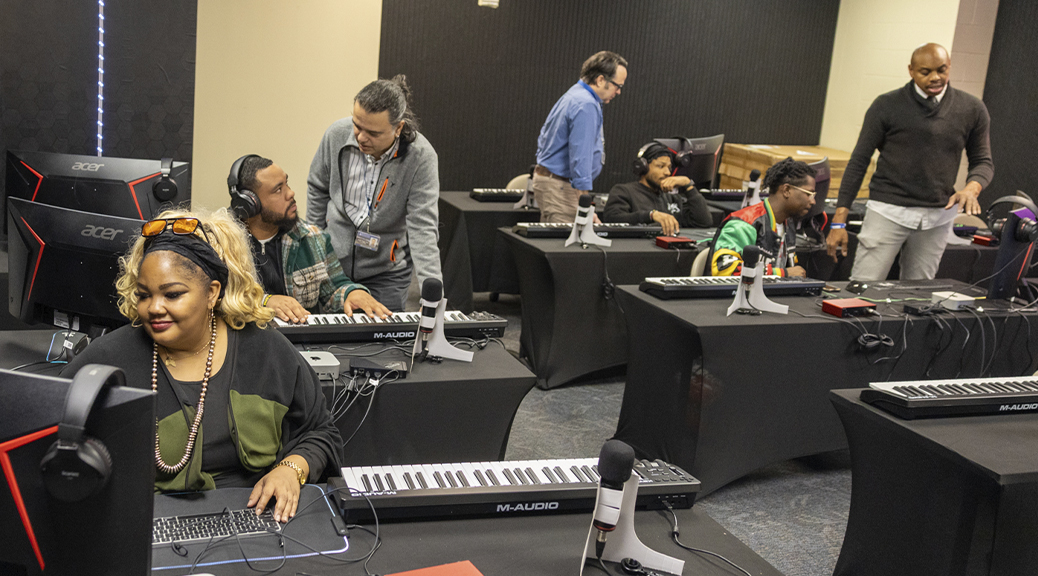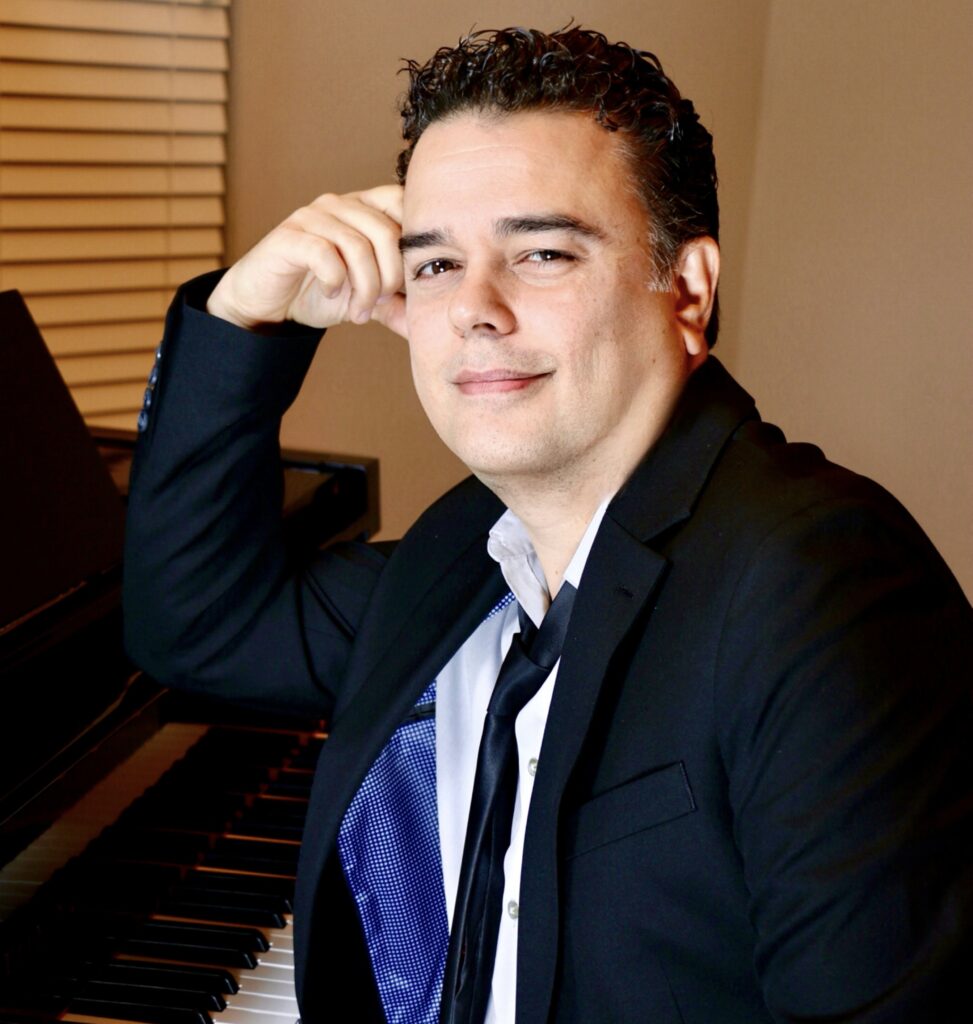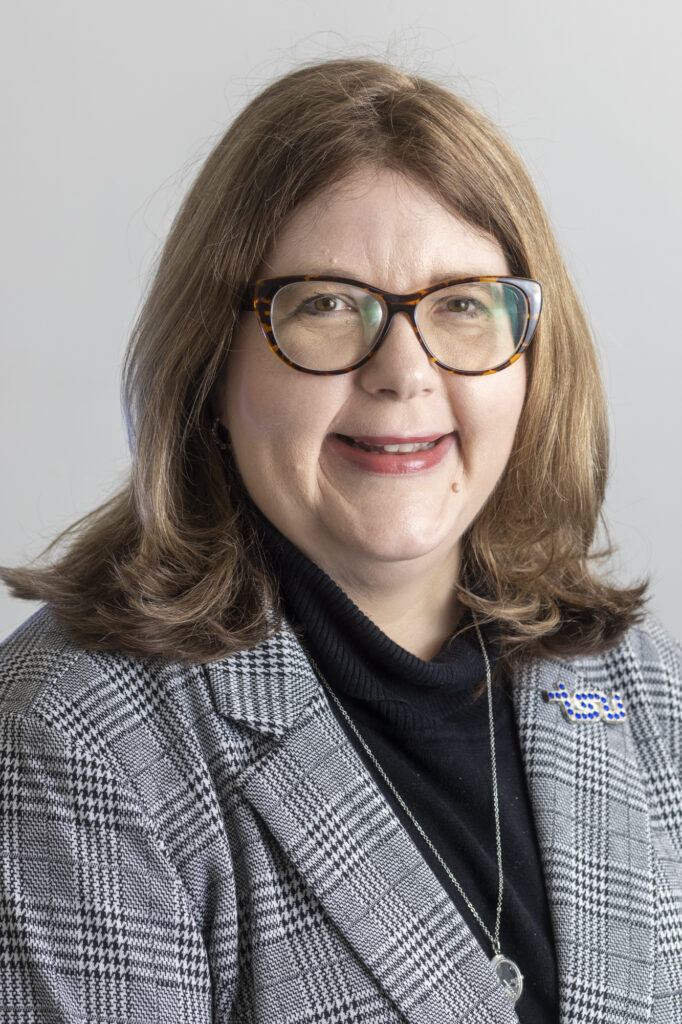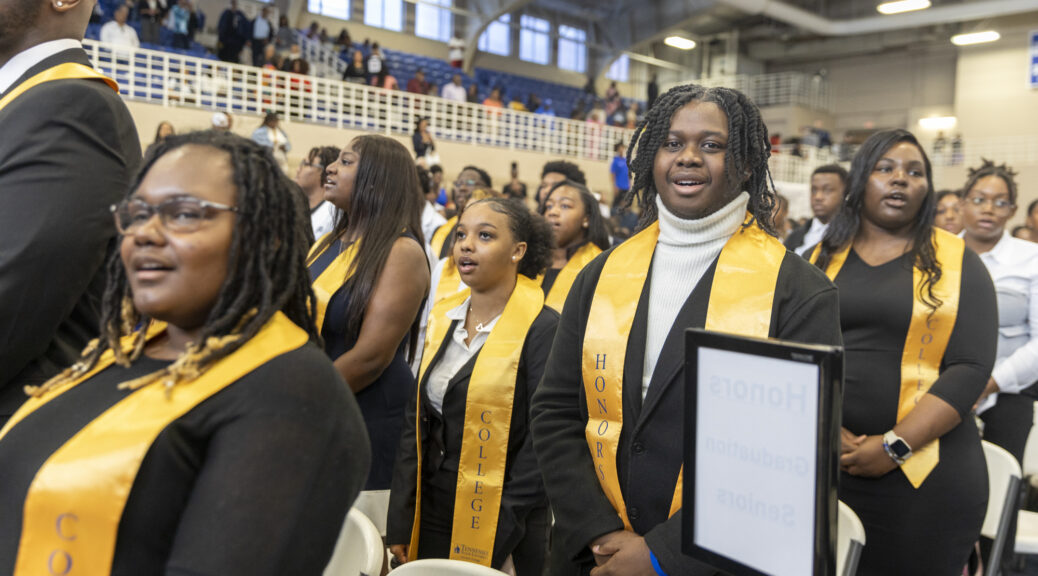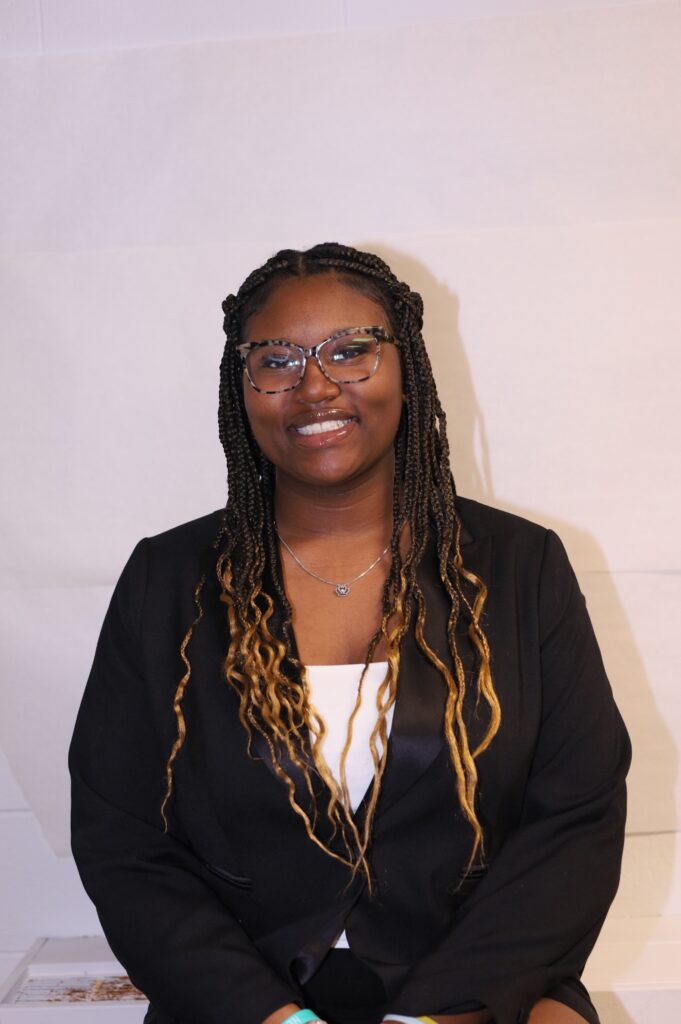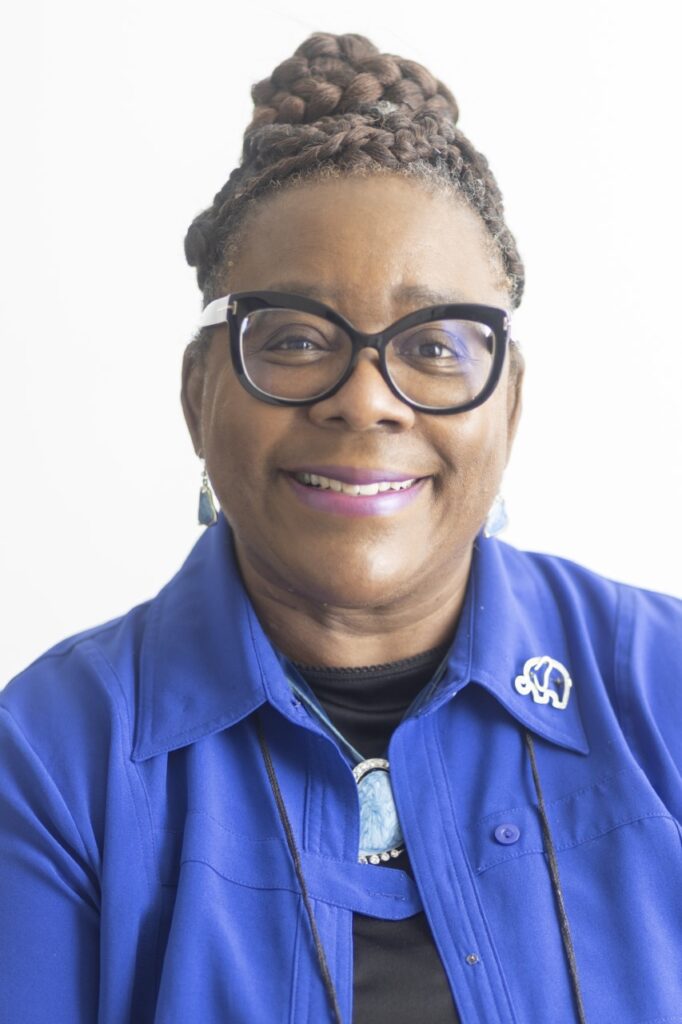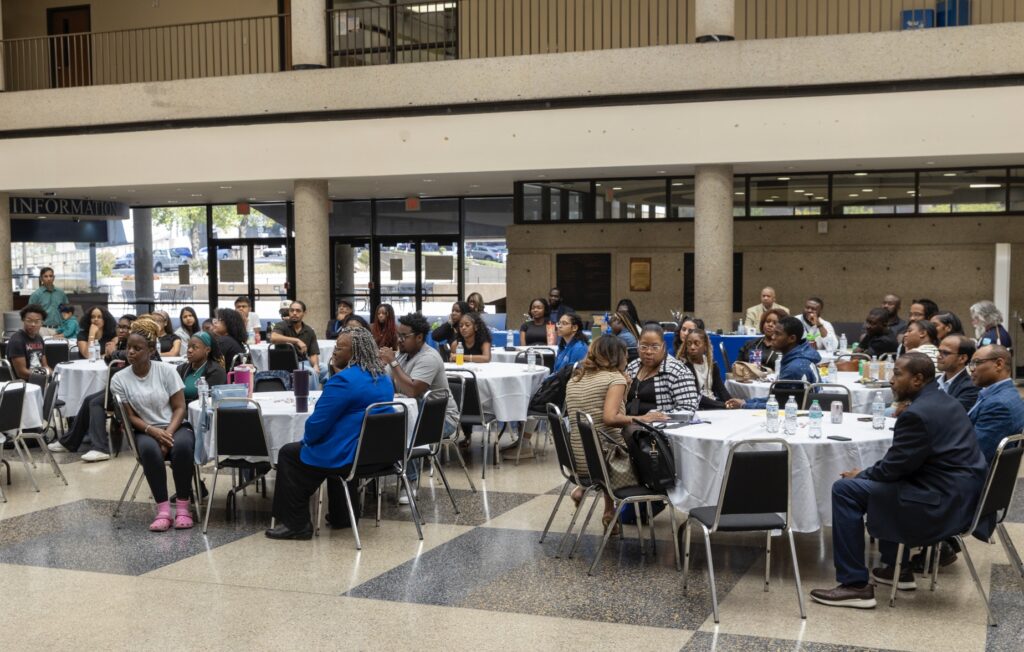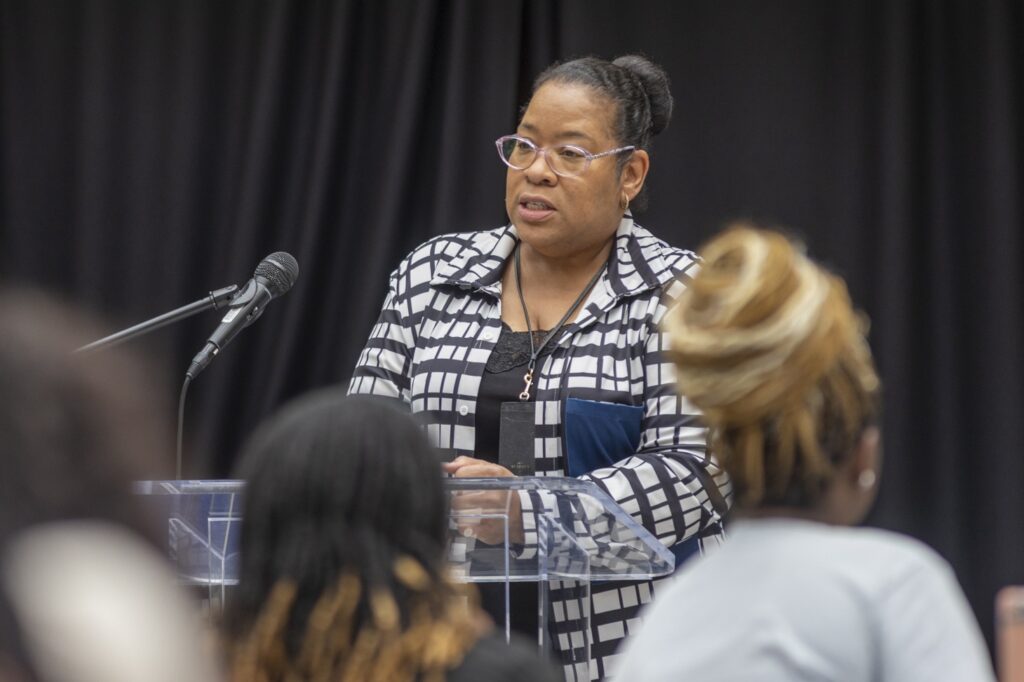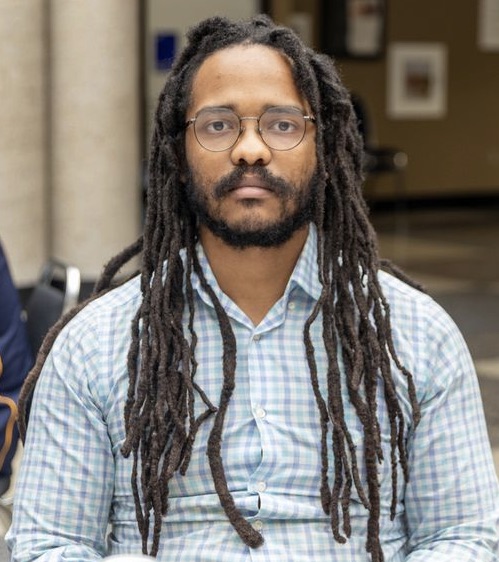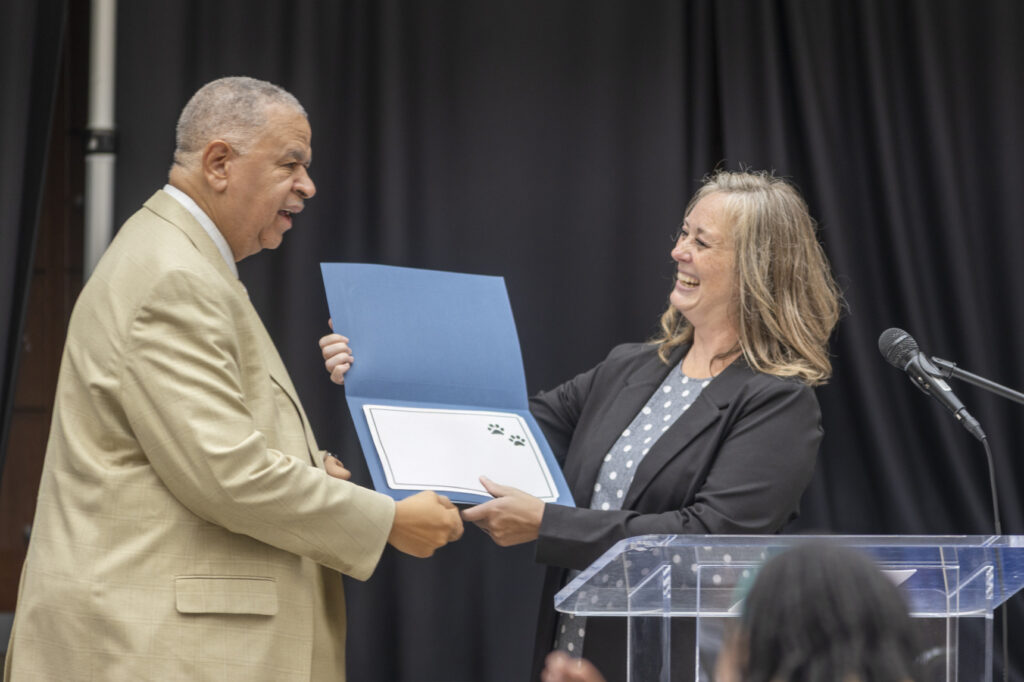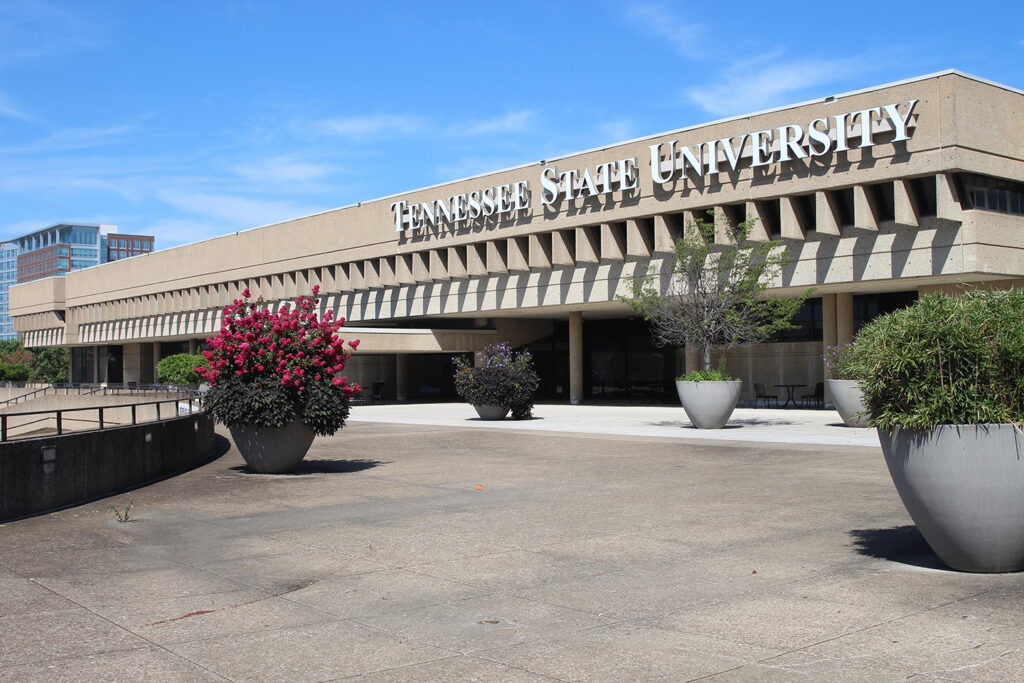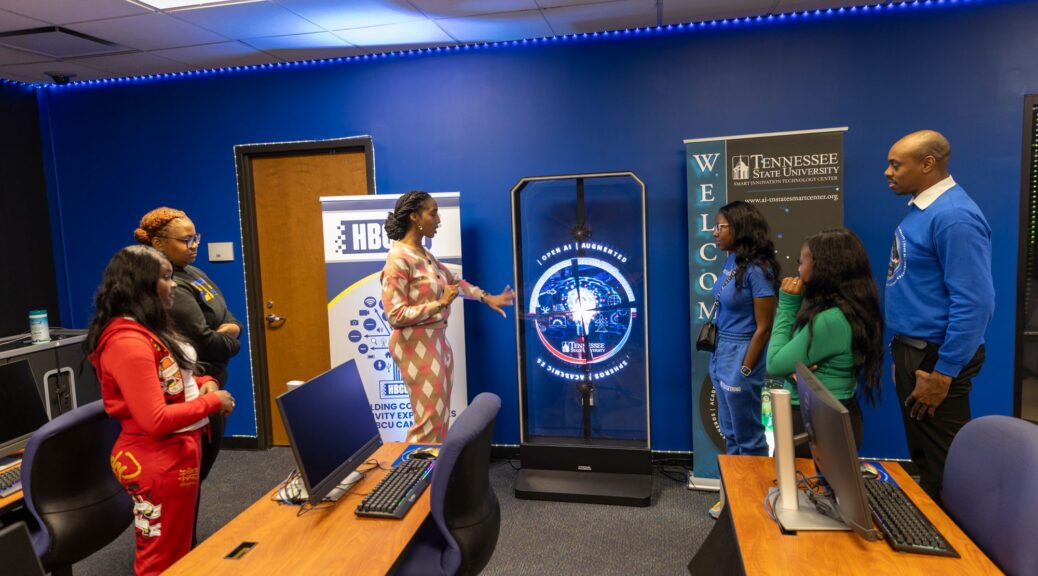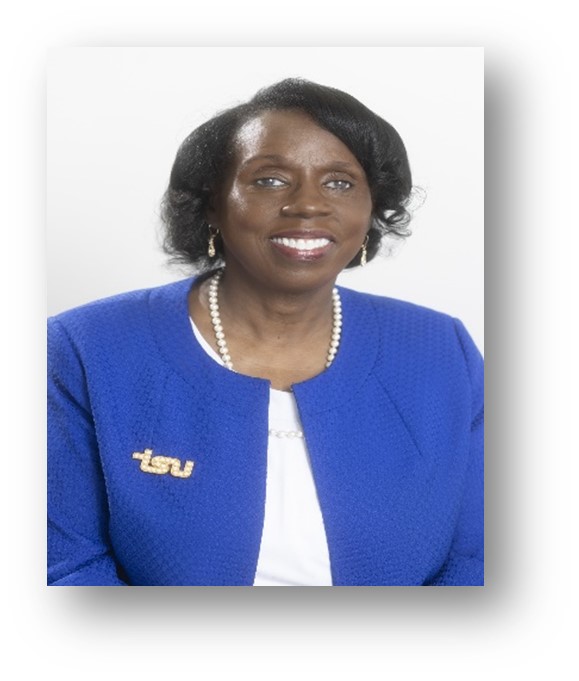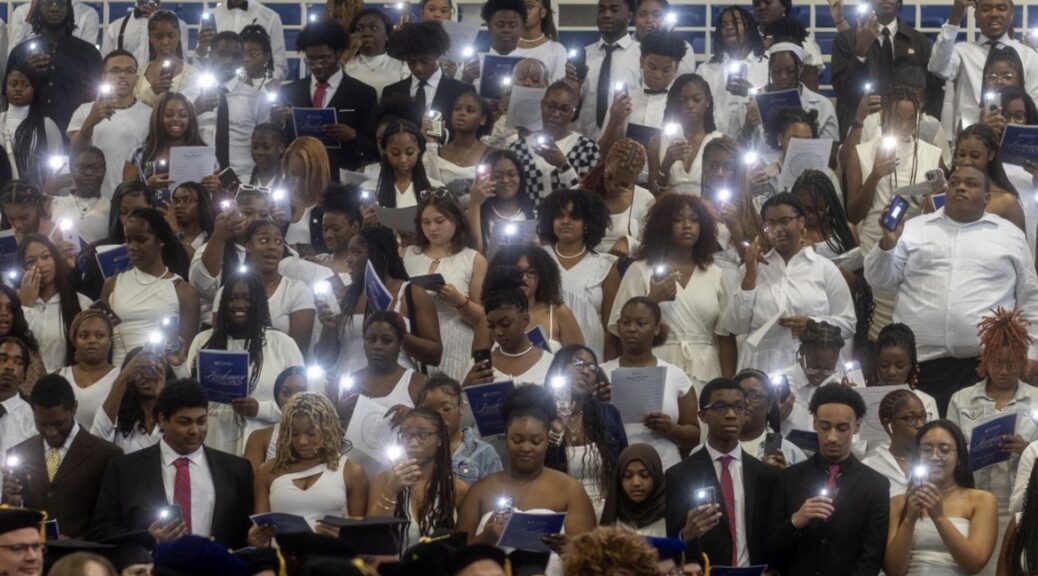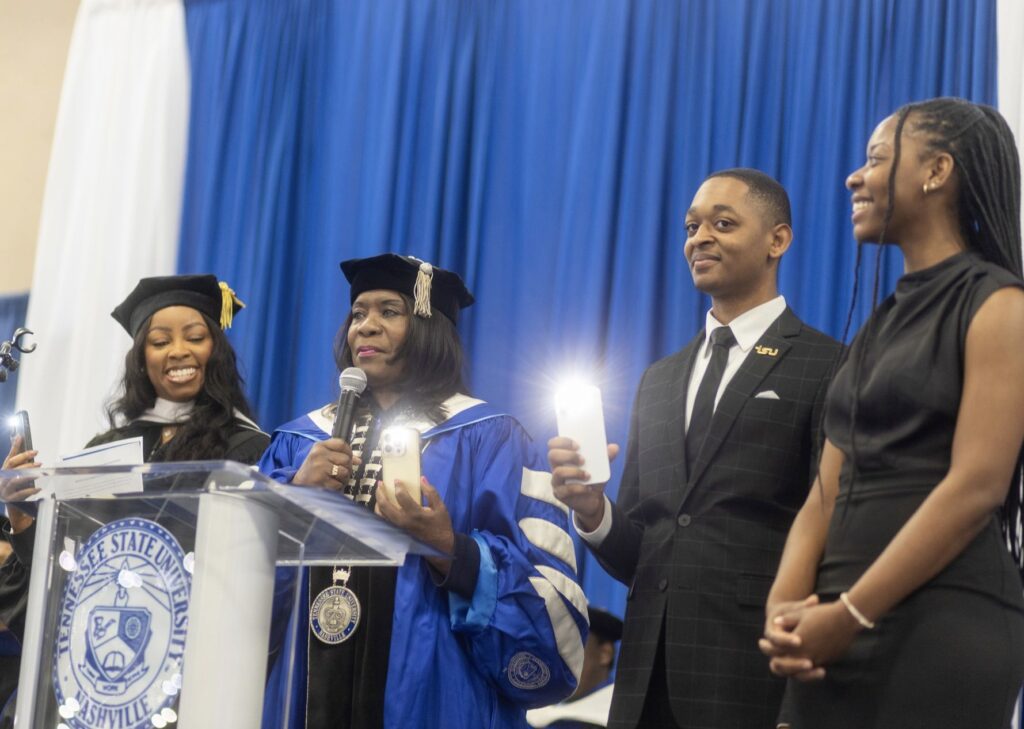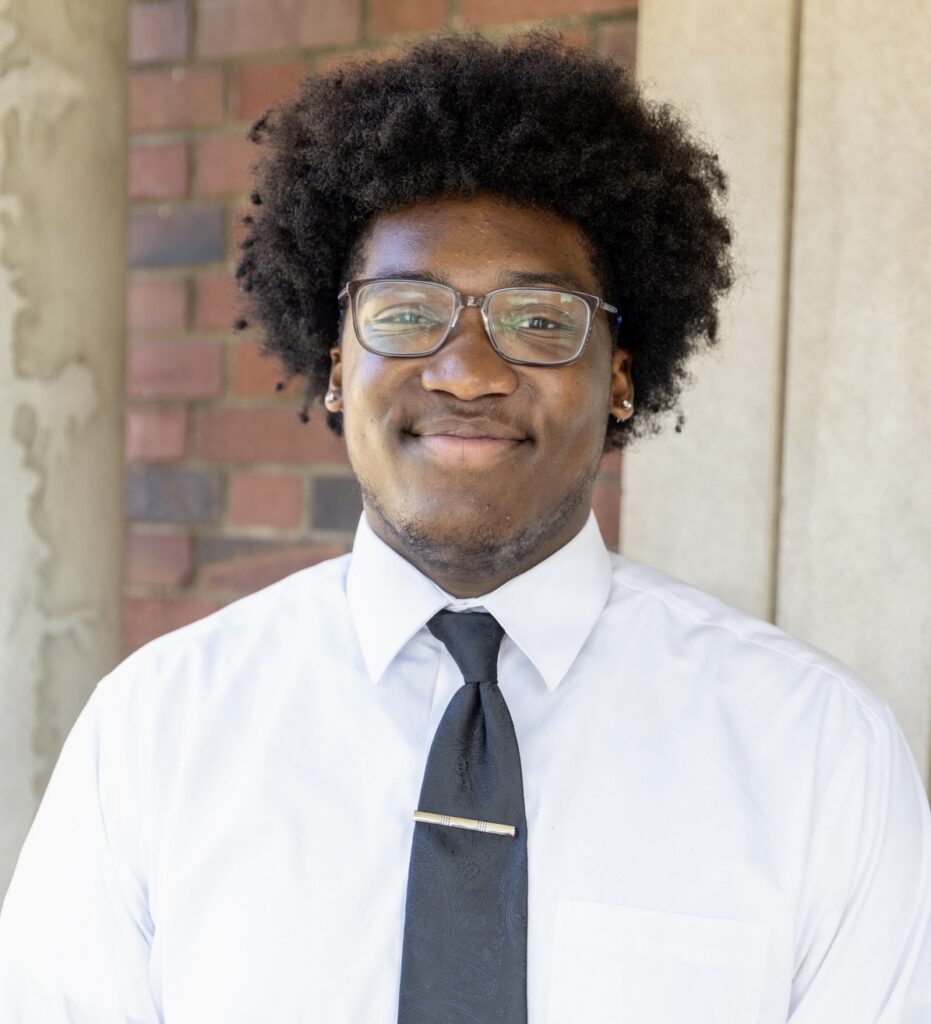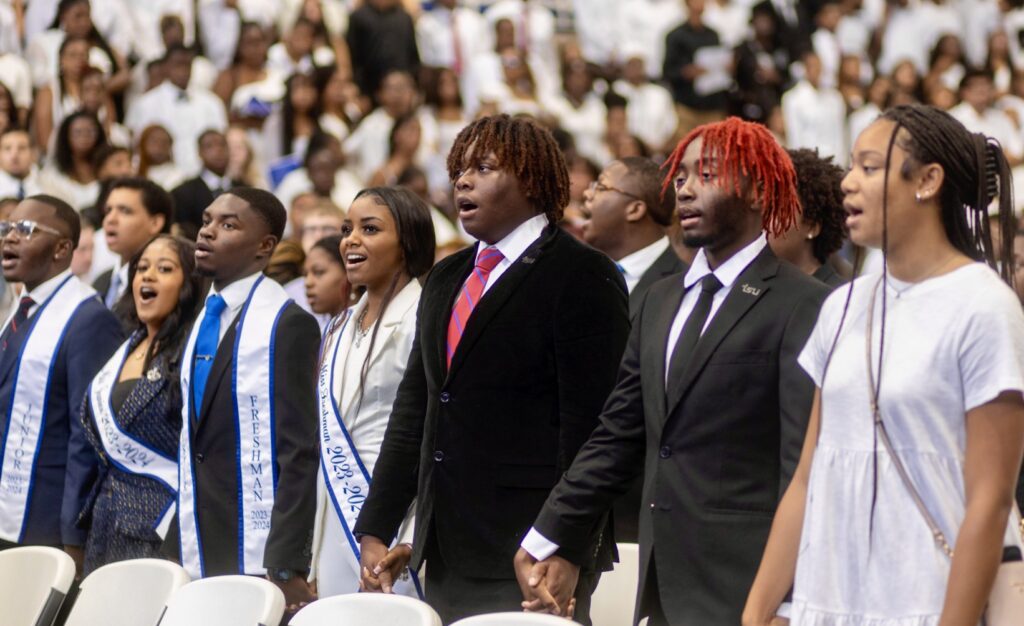NASHVILLE, Tenn. – (TSU News Service) – Beginning January 9, Tennessee State University is enhancing music technology education within its Commercial Music program with the introduction of its new SMART Tech Music AI Classroom and Studio on the downtown Avon Williams campus. Students from all disciplines can enroll in a variety of courses offered both in-person and in hybrid formats this spring semester.
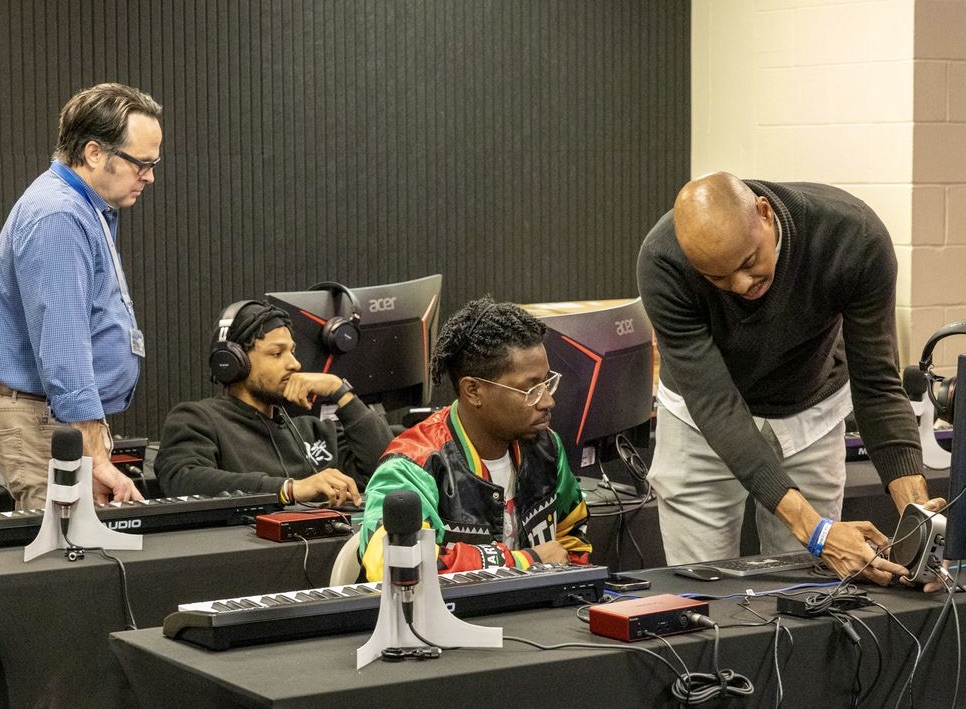
“This program really opens so many doors for creatives. It’s bringing more people onto the radar who want to be content creators, influencers, and artists striving to succeed in music, said Mateo Smith, a senior music technology major from New Orleans. “Being based in Nashville makes it even more powerful. This city is an incredible place to start and continue growing creatively throughout your life. I truly believe the ‘Music City’ is about to see a shift because of this, especially with its launching through an HBCU. I love it.”
Another senior music major, Thurman Blake, from Riverdale, California, said, “It’s interesting, kind of like a big breath of fresh air. Here, there’s a lot of new stuff just for music, recording, sound creation. It’s exciting.”
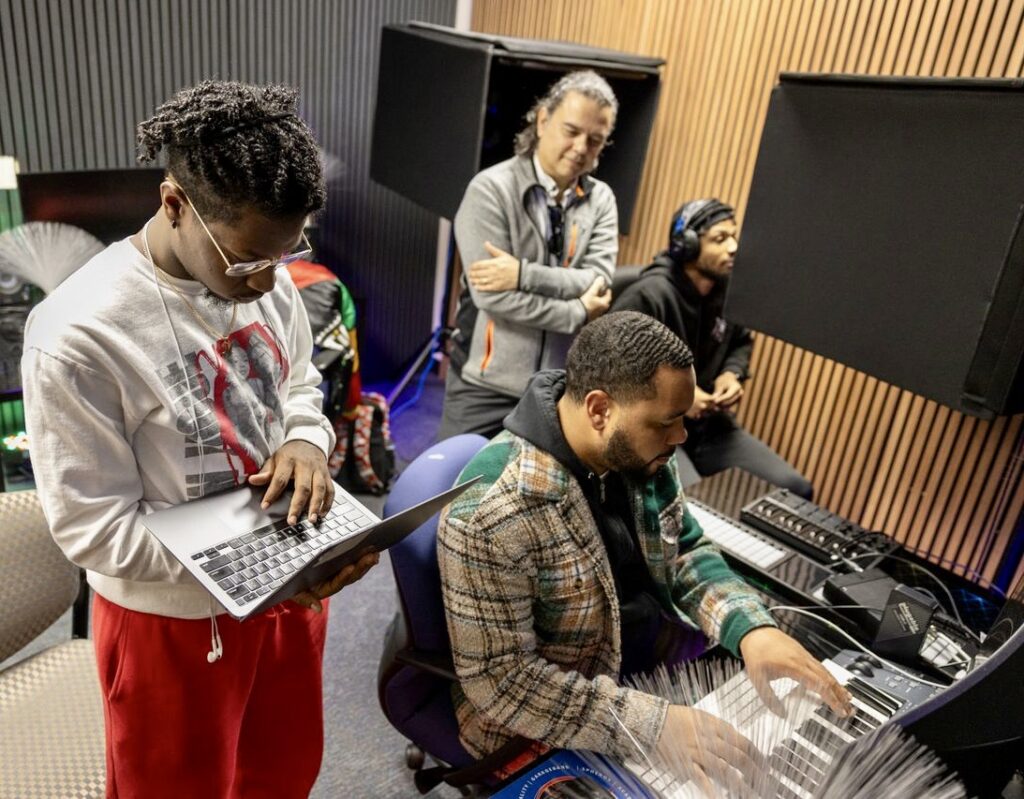
The cutting-edge facility, developed in partnership with the College of Liberal Arts and the SMART Technology Center, aims to foster a dynamic environment where students can delve into the intersection of music, technology, and artificial intelligence. Course offerings include:
– MUSIC 4520 01: “Sound and Music for Video Games”
– MUSIC 2610: “Music and Technology I”
– MUSIC 3620: “Music Technology II”
Dr. Tolga Tem, assistant professor of Music and Coordinator of Music Appreciation, spearheads the initiative. “Music technology is crucial to our Commercial Music program,” he said. “As AI continues to impact our industry, these courses become increasingly relevant. We want our students to grasp not only the art of music but also the technology that influences it.”
Dr. Robbie Melton, provost and vice president of Academic Affairs and vice president of SMART AI/OE Applied Technology Innovations, is a strong advocate for this collaborative project. “We are thrilled to support our students in exploring the limitless potential of music and technology,” Melton said. “This collaboration highlights our commitment to innovation at the intersection of creative arts and technology, ensuring our students are prepared to excel in an evolving landscape.”
The SMART Tech Music AI Classroom and Studio features state-of-the-art computers, advanced digital keyboards, and professional podcasting equipment tailored for digital music production, sound design, AI-assisted composition, and audio storytelling. This collaborative space promotes engagement beyond traditional practices, allowing students to discover innovative methods of music creation and sharing in a digital world.
“This course and these innovations build on the esteemed foundation of the Music program at TSU,” said Dr. Samantha Morgan-Curtis, dean of the College of Liberal Arts. “Dr. Tem has established himself as a recognized expert in the intersection of Generative AI and music, and the SMART Center under Provost Melton’s leadership has enabled him to grow his pedagogy in these areas. This initiative is crucial in ensuring that the Music Program remains at the forefront of innovation and responsiveness to student needs, aligning with the College of Liberal Arts’ goal of equipping students with the skills necessary for today and tomorrow’s careers.”

Tem emphasized the potential for interdisciplinary collaboration, inviting participation from faculty and students in fields such as communications and computer science. “This synergy will create opportunities for students in areas like film scoring, sound design, and video game development, enhancing their educational experience and preparing them for careers in the fast-evolving realms of music, audio production, and digital media,” Tem added.
For more information about courses and the SMART Tech Music AI Classroom and Studio, please visit the Music Department at www.tnstate.edu/music/.
Featured photo: The SMART Tech Music AI Classroom and Studio features state-of-the-art computers, advanced digital keyboards, and professional podcasting equipment. (Photo by Aaron Grayson)
About Tennessee State University
Founded in 1912, Tennessee State University is Nashville’s only public land-grant university offering 41 bachelor’s degrees, 15 graduate certificates, 27 master’s degrees, and nine doctoral degrees. TSU’s campus spans 500 acres. The university is committed to academic excellence, providing students with a quality education in a nurturing and innovative environment that prepares them as alumni to be global leaders. Visit tnstate.edu for more details.
